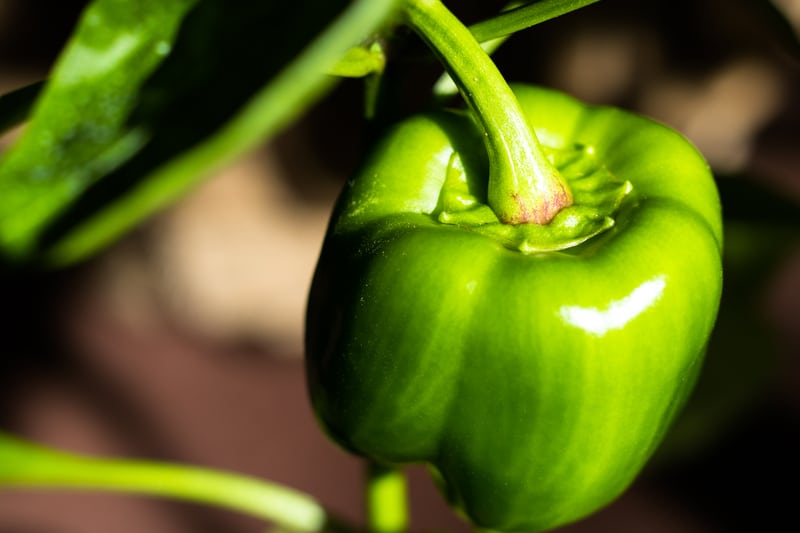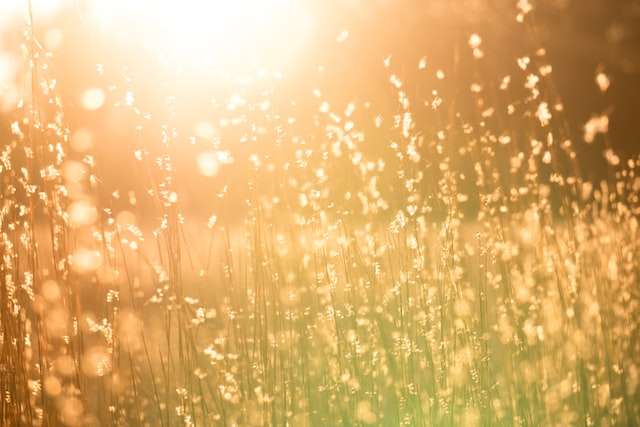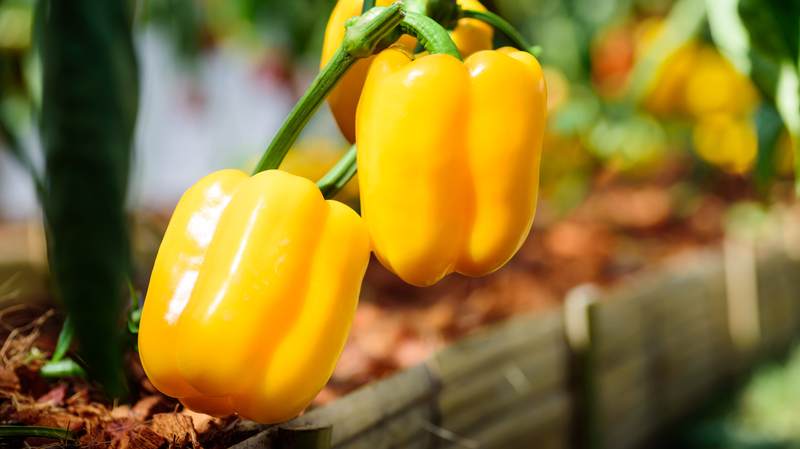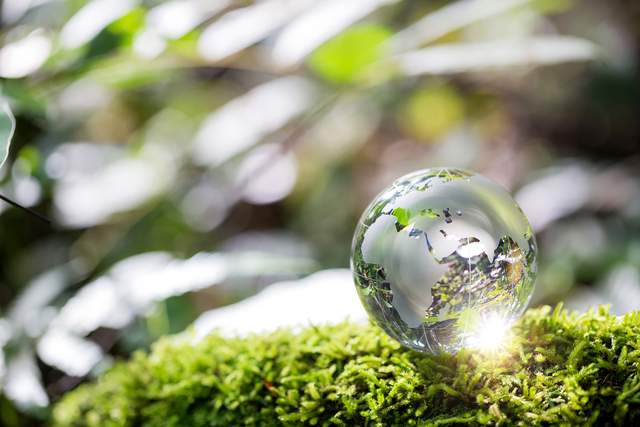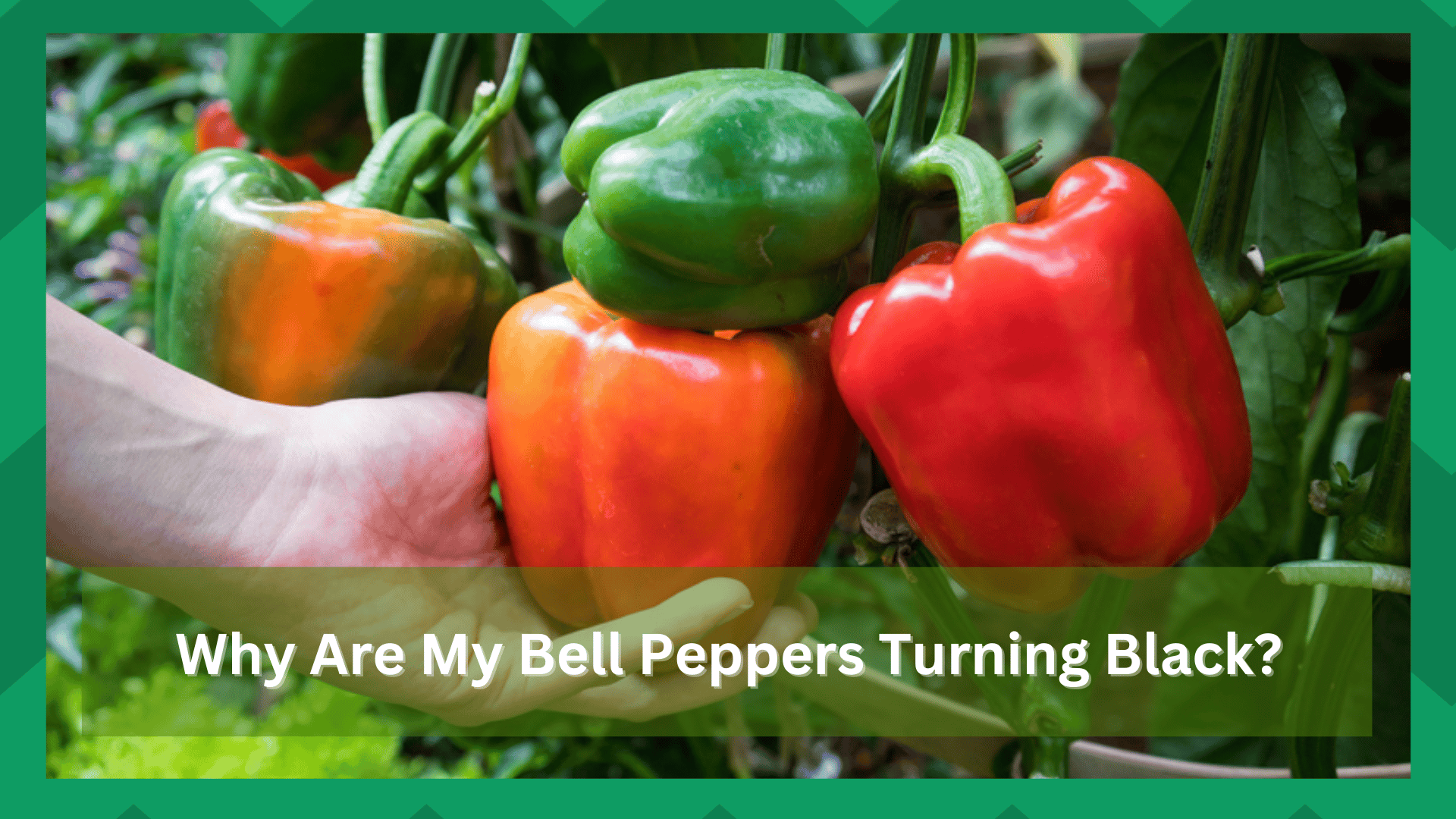
Bell peppers are small fruits that grow on flowering plants. Although, people will notice that these are mostly referred to as vegetables.
The main reason behind it is that the uses of fruit are mostly as culinary vegetables.
These are only fruits because small seeds grow inside them that can be used to plant different bell peppers.
The vegetable has several colors that it can grow into. Still, these usually depend on your selected variety, ranging from yellow, red, orange, white, chocolate, purple, and even candy-striped.
Overall, these are one of the best plants you can grow in your garden as they provide people with delicious vegetables that can be used in many recipes.
However, there are also some problems that you might run into when growing these. A common question regarding vegetables is, “Why are my bell peppers turning black?”.
If you are wondering about the same thing, then going through this article should help you in getting some reasons behind the issue as well as ways that can be used to fix them.
Why Are My Bell Peppers Turning Black?
- Variety Of Bell Peppers That You Have Planted
When growing bell peppers, if you notice that the color on them starts turning black, then the first thing you should check is the variety of your plant.
This is because the vegetable has several colors that it can grow in depending on the species you have planted.
The purple species or darker-colored ones usually form a blackish shade on them when growing.
This is completely normal and should not alarm the user. Keeping this in mind, if you notice the color turning black, observe the vegetable closely.
You will see that it still has hints of its original color along the black shade, indicating that it is still growing.
These can take about a week to completely ripen up and get their original color, so you should wait patiently.
You can then start harvesting them and use them in your dishes. On the other hand, if the variety of your bell peppers is not causing the issue, then moving on to the next steps is your best option.
- Amount Of Sunlight Your Plant Is Getting
If the color of your bell peppers is a different shade but still turning black, then the problem can be due to excessive sunlight.
This is common, as too much heat can easily burn these plants. The black spots should start forming slowly unless the light is too bright.
These indicate that the vegetable has started to burn, and the best way to avoid the problem is by moving its location.
People can try changing their plants to a different spot with less light, which should help eliminate the problem.
The process is easy if you keep your bell peppers planted inside pots. However, if moving them is not possible, the next thing you can try is watering the soil.
This should help in countering the high heat and protecting your vegetables.
Depending on the temperatures, some people might have to cover their harvest with shade. There are tons of green shade covers available on the market that can be installed on top of their plants.
These are easy to set up and can also be removed when not required. In some cases, only one of these solutions might work, but some might also have to combine both steps.
- Bell Peppers Catching A Disease
If you are still having the same problem with your bell peppers, then this means that they might have caught a dangerous disease.
When it comes to this, you must take steps to fix the issue as soon as possible.
Most diseases like these can spread around the plant and eventually cover your entire harvest.
Keeping this in mind, it is best to visit a store and get fungicides that can be used. The medicine should kill the disease and help your bell peppers grow properly without additional problems.
- Extreme Environment
Bell peppers are a popular and versatile vegetable widely used in cooking.
They can be eaten raw or cooked and make a tasty addition to many dishes, from salads to stir-fries.
However, bell peppers sometimes turn black when exposed to extreme environmental conditions, such as hot or damp weather.
There are a few different factors that can contribute to bell peppers turning black. For example, higher temperatures can cause the outer layer of the pepper to soften and decay, which may lead to discoloration.
Likewise, exposure to moisture in the form of humidity or rain can cause the same effect.
If you notice your bell peppers turning black, there are a few things you can do to prevent further damage.
For example, you may want to keep your peppers in a cool, dry place with good ventilation.
Additionally, you might consider using a slightly acidic soil mix when planting your peppers, as this can help prevent rotting and discoloration.
Your bell peppers should stay fresh, vibrant, and delicious for many years with proper care and attention.
So if you’re a fan of this tasty veggie, take the necessary precautions to keep your peppers looking their best.
Are bell peppers turning black a farming error?
A blackening of bell peppers can occur when they become overripe. Bell peppers turning black will begin to wrinkle and dry out, almost appearing burnt.
The skin will turn either a deep red or almost black color. You may notice parts of the pepper are turning dark brown or even gray.
Some say this is because of a fungus, but there is no scientific evidence to support this claim.
Bell peppers that are not being picked at the right time and have sat too long on the vine will begin to rot and look black when they are cut open.
If you think your bell peppers are turning black because of mold or fungus, it may be worth looking into other causes.
This is because mold and fungus can be controlled by using a fungicide that will kill any type of bacteria or mold on your pepper plants.
One possible reason for bell peppers turning black could be soil deficiency.
If your bell peppers are not getting enough nitrogen, they may turn black as their chlorophyll begins to break down. Nitrogen is important for producing amino acids and proteins in your pepper plants.
A lack of nitrogen may also cause a reduction in the size and quality of your bell peppers, as well as their ability to blossom.
Another possible reason for bell peppers turning black could be water deficiency.
If your bell pepper plant does not receive enough water, the plant will begin to wilt, and the leaves may become yellow or brown. Once your bell pepper turns black, getting the color back into the fruit can be difficult.
How to prevent peppers from turning black?
If your bell peppers are starting to turn black, there may be something wrong with the way you are storing and treating them.
Bell peppers should ideally be stored in a cool, dry place away from direct sunlight or other heat sources.
To prevent them from turning black, keep them at room temperature or slightly below it and in a place free from direct heat and indirect light.
If your bell peppers are turning black, you may also need to be more careful with handling or processing them.
Bell peppers should always be washed before consuming or cooking with them, but avoid using harsh scrubbing tools or detergents when cleaning them.
Instead, gently rinse your bell peppers under cool running water and then pat them dry with a soft towel.
To prevent your bell peppers from turning black while cooking, try not to overcook them or expose them to high temperatures for too long.
When stir-frying, sautéing, grilling, or roasting bell peppers, keep the heat at medium or low and avoid cooking them for too long.
Also, ensure that you toss your bell peppers frequently while being cooked so they don’t get stuck to a single spot on the pan and turn black.
To further prevent blackening in your bell peppers, you can also try treating them with a little lemon juice.
Simply drizzle some fresh lemon juice over your bell peppers before storing or cooking them, and it will help inhibit the oxidation process that causes blackening.
You can also try covering your bell peppers loosely with plastic wrap to prevent oxygen from getting to them, which is another common cause of blackening when dealing with bell peppers.
If you are interested in learning more about preventing bell peppers from turning black, there are several great resources available online that can help.
Research best practices for storing and cooking bell peppers and talk to your local farmer or grocer to learn more tips for keeping your bell peppers fresh and vibrant.
With the right care, your bell peppers should stay beautiful and delicious for weeks or even months!

